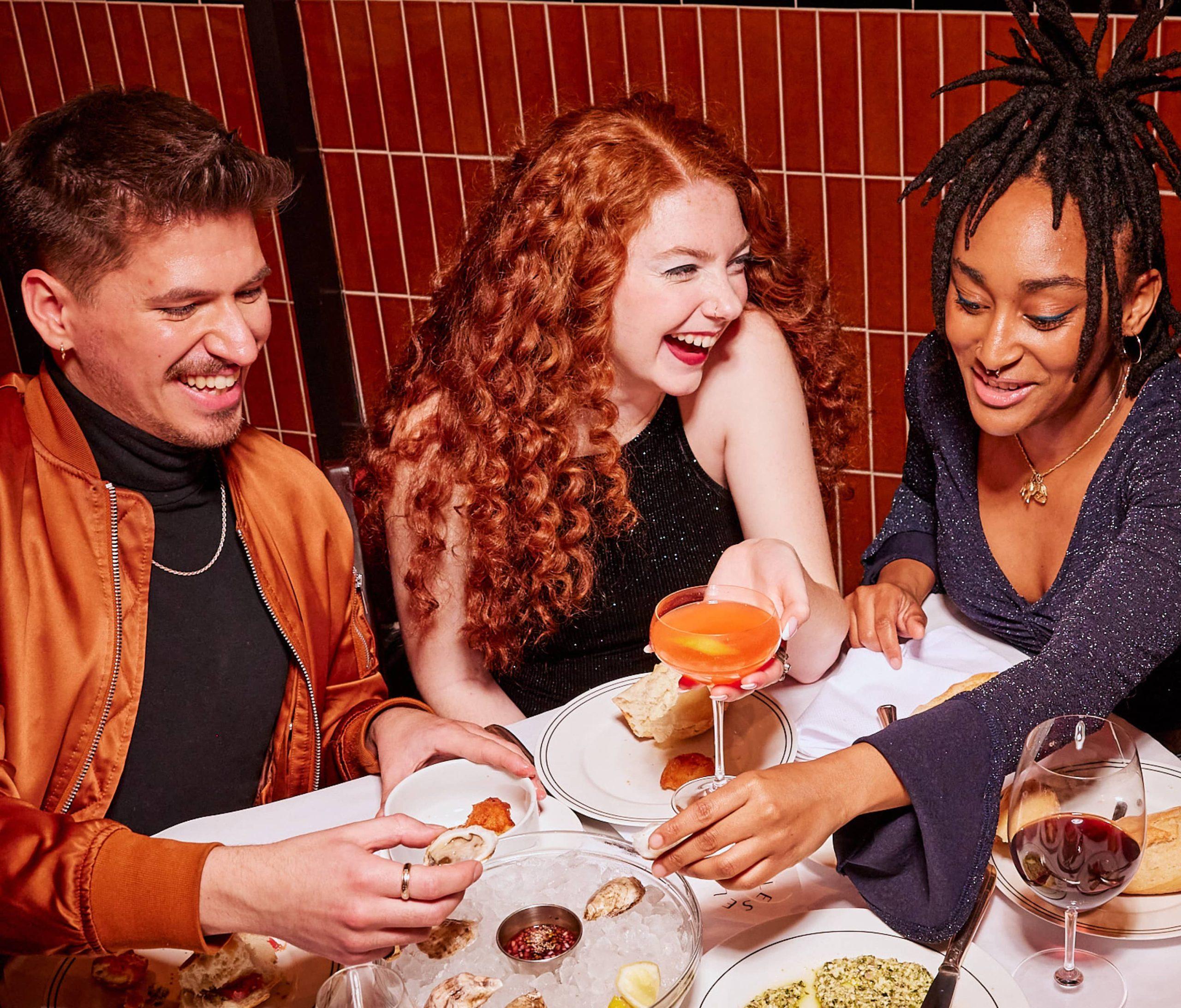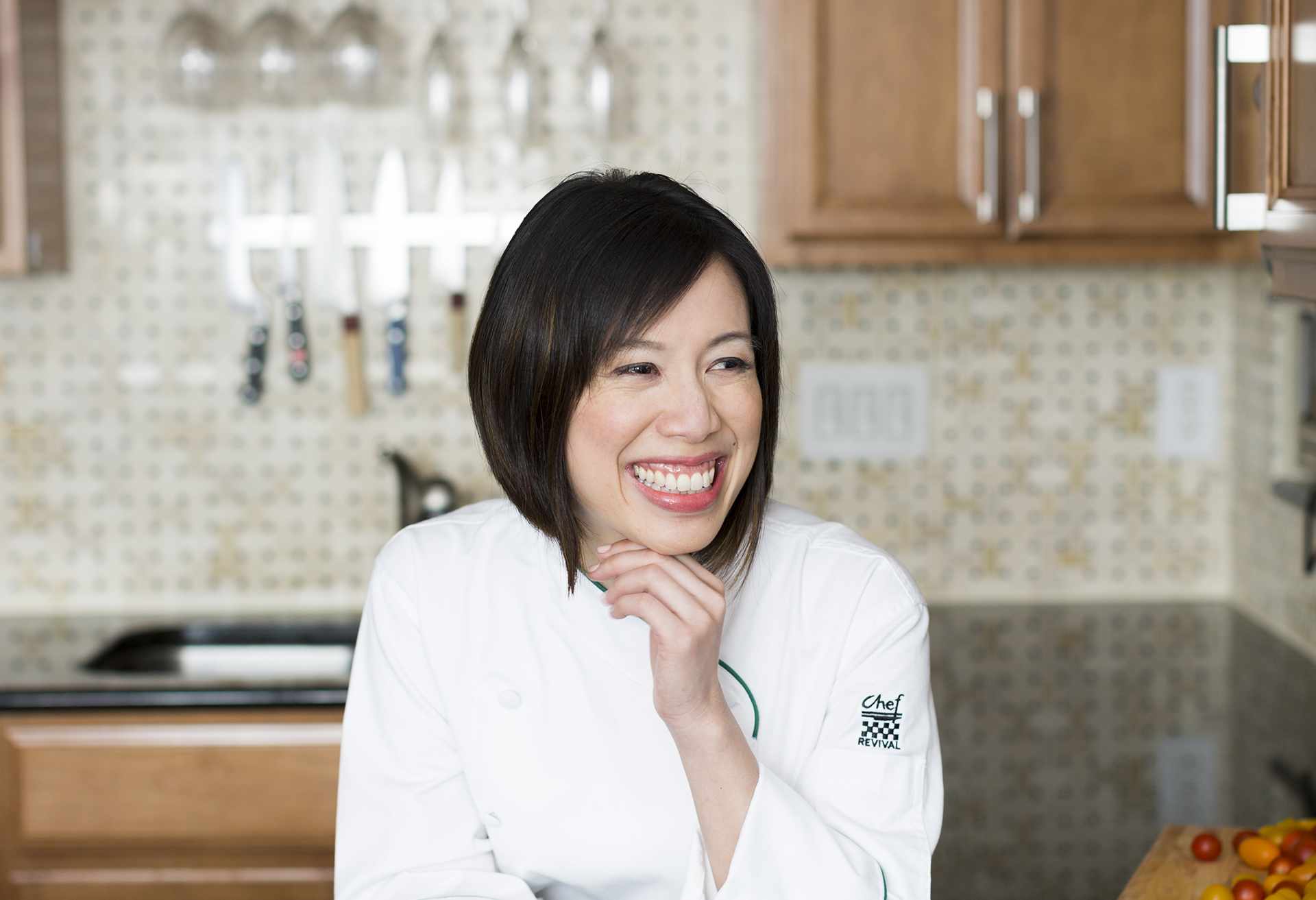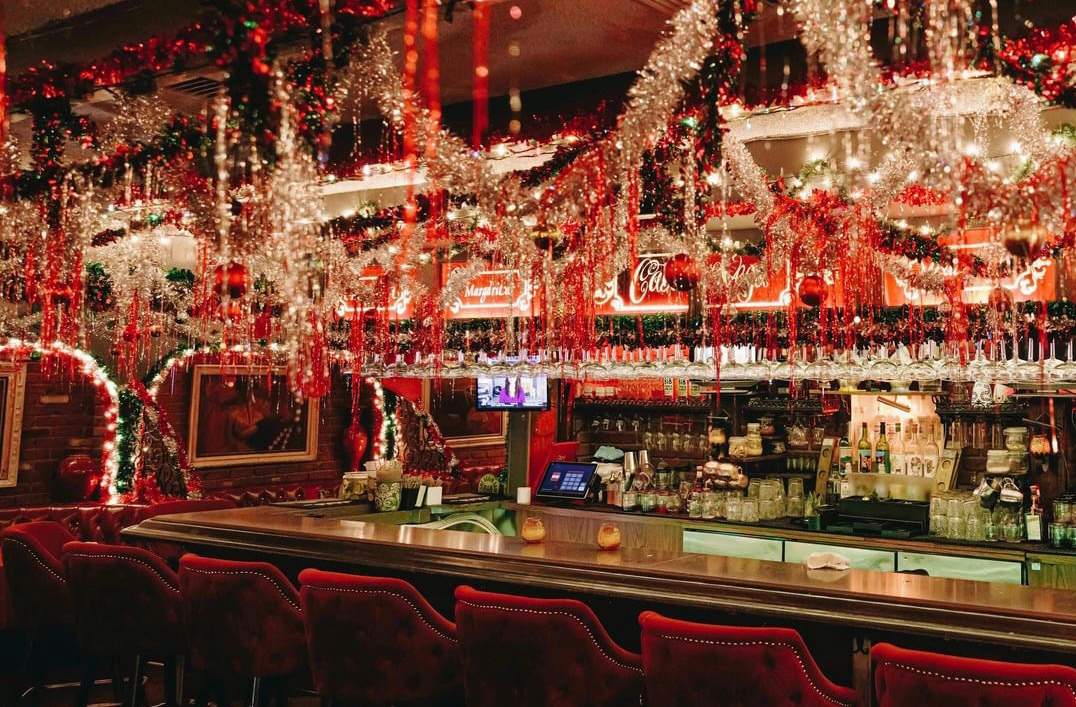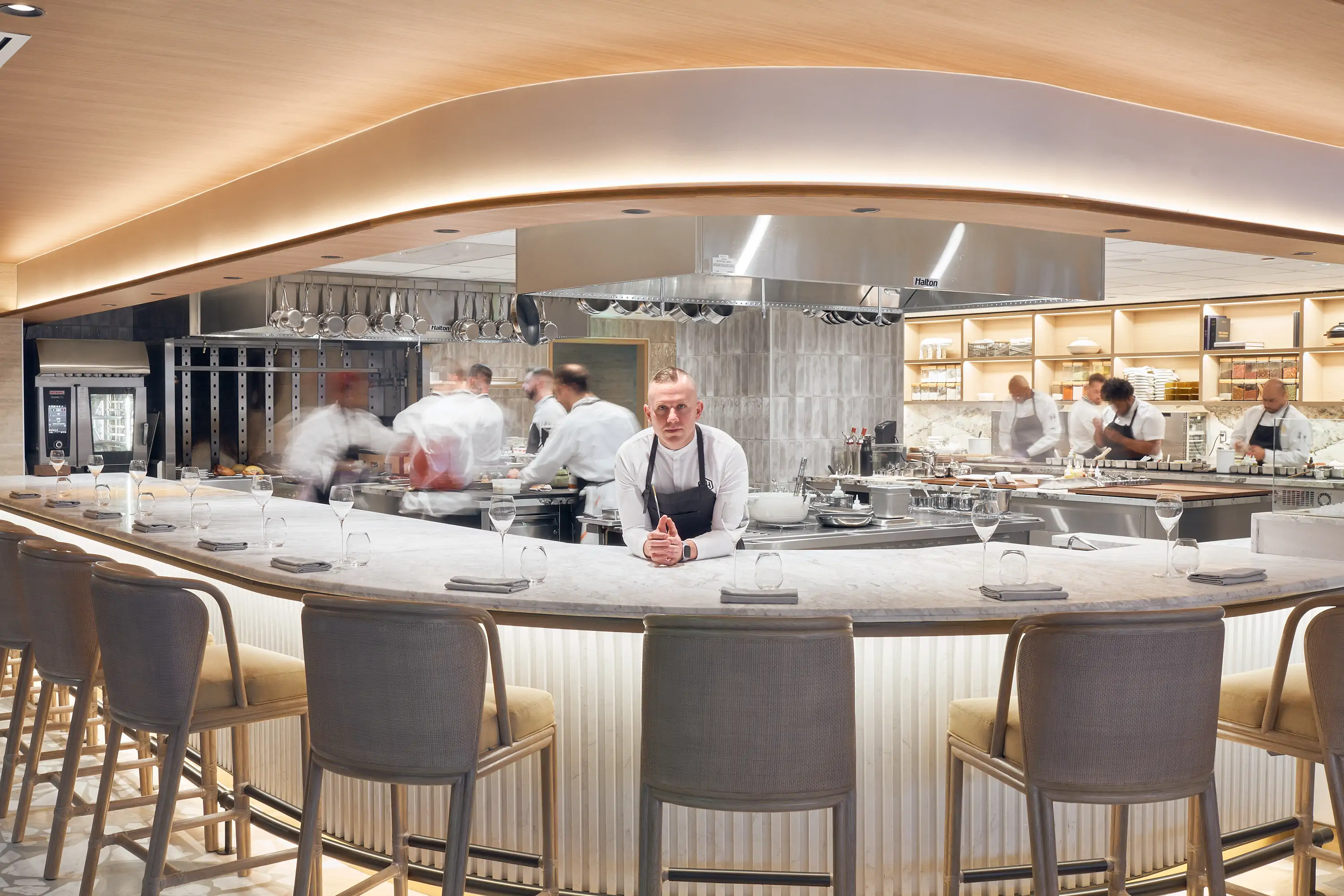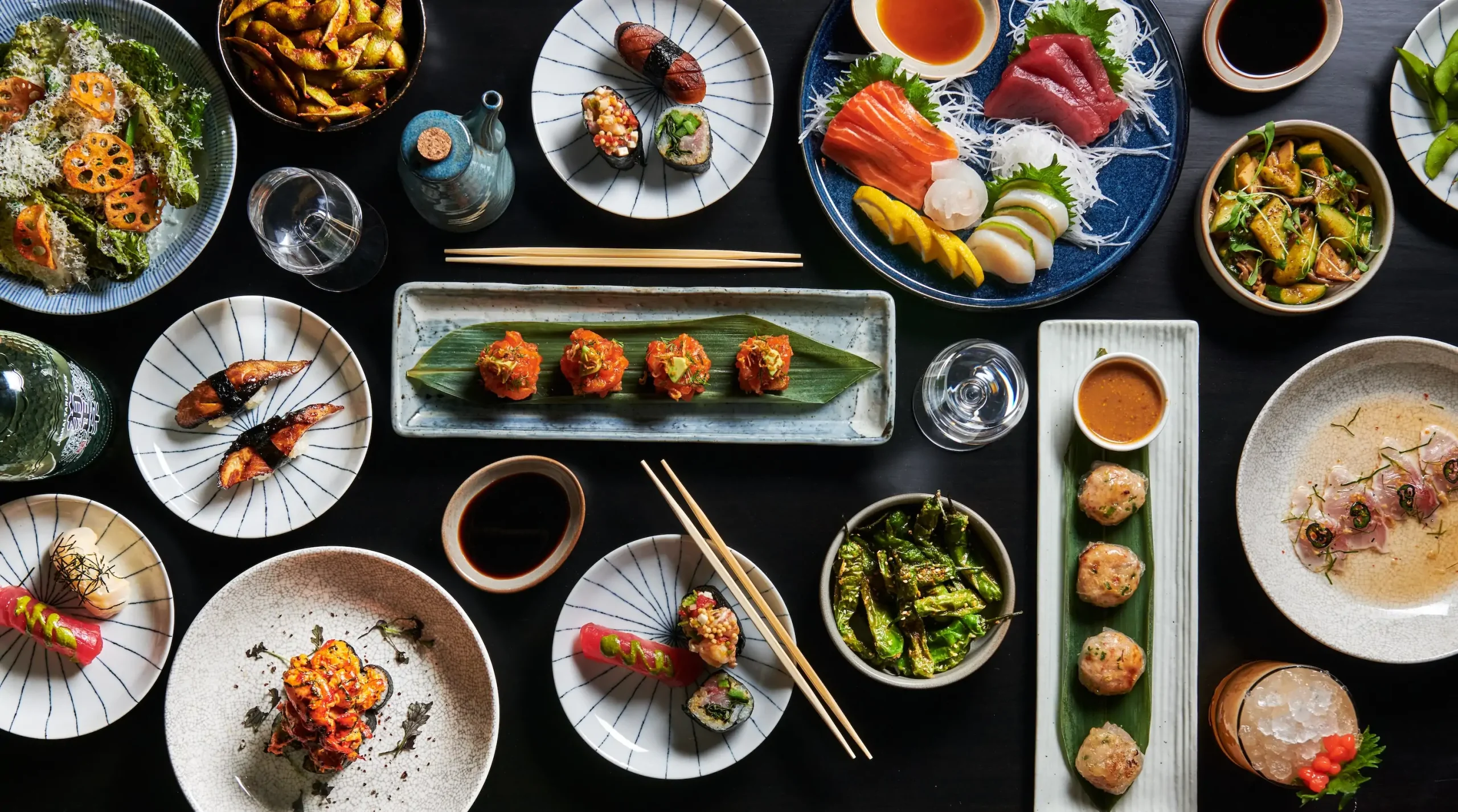This article discusses mental health and suicide. If you are in emotional distress, please contact the Lifeline at 1-800-273-TALK.
It’s been nine years since Christine Ha captured America’s affection as the season three winner of Master Chef. Ha, who has neuromyelitis optica, competed blind but never let the disability hold her back — evidenced by the fact that since winning the intense TV cooking competition, she’s grown her empire to include speaking engagements, a cookbook, a YouTube channel, and two Houston restaurants.
Now known widely as The Blind Cook, Ha has navigated the intense world of restaurants in her own unique way — and learned a lot along the way. Here’s how Ha runs The Blind Goat and Xin Chao while prioritizing self care.
Can you take me back to your early career — how did you develop becoming a chef while legally blind?
Cooking really started as a way of survival. I was in college, and I didn’t grow up learning to cook at all. At that time I had my full vision, and I ended up buying used cookbooks and a cheap kitchen set for cooking and experimented in the kitchen. Of course I went through a lot of bad dishes, but I finally cooked something that my friends actually ate, and I realized that there was something that made me happy about being able to feed other people and make them happy with my own creations. That was my initial spark.
I found out a few years later I was correctly diagnosed with neuromyelitis optica, or NMO, which is an autoimmune condition that affects my optic nerve and spinal cord. In my 20s I gradually began losing my vision, and cooking became something I thought wasn’t as attainable. But I’m stubborn and very independent. I was living alone, and I knew I had to learn how to feed myself. I didn’t expect to be cooking full meals again, but I started off small, like learning how to put together a cold sandwich, then frying an egg, then cooking instant noodles and relearning how to navigate the kitchen with my newfound vision loss.
What was it like to be on and win Master Chef?
[Cooking] didn’t become a career until I decided to compete on Master Chef. I went as a home cook that really loved to cook for other people. But because I won season three, that really launched more of my culinary career.
[Winning] definitely felt surreal, shocking. I think it was a huge boost to my self confidence. It taught me to trust my intuition more and my abilities and my own opinions about food. What I’ve learned is that food, like art, is subjective, so what you do is not going to always please everybody. But I think if you believe in what you cook and put on a plate, then there will be people who follow you and believe in your food as well.
Mental health is such a huge topic in the restaurant industry. How do you navigate your mental health?
I think mental health can often be a taboo subject, especially because I come from an Asian background. Growing up it was considered just not something you talk about. After Master Chef, suddenly I was pretty well recognized and grappling with being judged as a person that was just on television and people thought they knew all of me. My co-finalist Josh — we were good friends — ended up committing suicide less than a year after the competition. So for me, mental health is something that I’m fortunate in that I have a platform where I feel I can say a lot of things and people will support me. And in turn I need to support issues I believe in and make things that formerly might be taboo to be normalized.
So I want to recognize that mental health is just as important as physical health. Disability rights should be considered a civil right as well. Now that I have two restaurants and I have staff, I can see how the industry takes such a toll. You’re on your feet all day and, especially coming out of a pandemic, people sometimes treat you like a servant not a human being. I encourage others to seek help or talk about it privately with me. Whatever it is, I’m supportive of that.
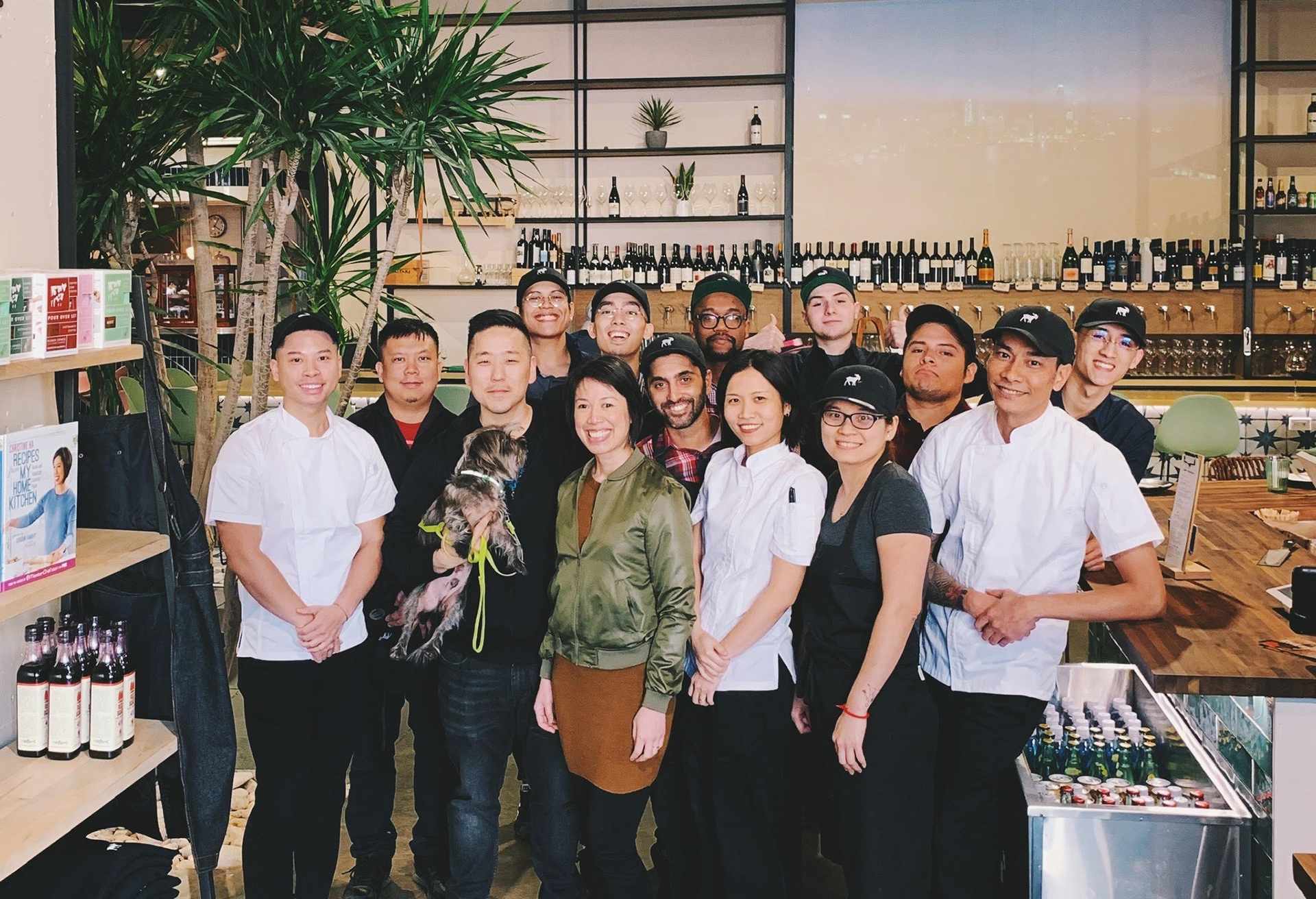
I’ve learned to prioritize self care. Just taking time out for myself. For me the thing too is my emotional and mental well being very much affect my physical well being, so I’ll know if I’m tired and stressed, I can feel it because it affects my neurological system. I’ve been through so much physically with my health that now I know above all else I need to prioritize my well being. Sleep is important, so I try to get at least seven hours, and I’m very much a structured person so there’s a certain wind down routine I need every night so I can prepare my brain to go to sleep. Those things and taking time out for myself to take a walk outside with my husband and my dog, get massages, make time to hang out with friends, that’s how I take care of myself.
How do you manage day to day with the restaurant?
Typically a lot of times I work from home. Especially with the pandemic, I’ll take a lot of meetings and calls at home. A lot of my speaking engagements have turned virtual so I do those from home. Sometimes I’ll do some R&D in my own home kitchen and have meetings with my staff mostly virtually. In the evenings, because my husband — he’s a partner in both restaurants — has a full time corporate job, we usually wait until he gets off of work and then we’ll go into the restaurants and do whatever we need to do, whether it’s just being present or helping the staff out.
I still funnily consider myself just a home cook even though I have two restaurants. I don’t run dinner service or lunch service at the restaurant. I’m there sometimes to help prep or to work on some dishes when we’re closed or not as busy. But once it gets pretty busy and the line gets pumping out a lot of food, not every cook knows how to work with someone who’s visually impaired, so for safety reasons I tend to leave the kitchen at that point and be in the front of house to greet guests or just be there for team morale. My staff sees I’m not a hands off boss and that I’m there and care about what happens at my restaurants.
Do other people with disabilities visit your restaurants?
More so with diners. Some people wonder if we have some sort of internship program, but my restaurants are young. But there are people who have watched or listened to Master Chef and found my story inspiring, so they come support whether they themselves have a disability or they are a caretaker of someone with a disability. I have found that people with various disabilities have come because of my story. I’m happy to welcome all people at my table. I feel like this world is more beautiful because of all the diversity in it. Whether it’s people of different ethnicities, religious backgrounds, varying abilities, or whatever, I like being able to see all sorts of people enjoy the experience at my restaurants.
What’s next for you?
I’m never the person to rest on my laurels, so a core value at my restaurant is be better today than you were yesterday. It’s continuing to get better because my restaurants are still fairly new. I never pictured myself to be an entrepreneur nor a restaurateur of multiple concepts, but I have so many ideas. It’s been challenging and rough to open restaurants, but I’m proud of what we’ve been able to accomplish, and I just want to keep making people happy with the different foods I make.
If you or someone you know is struggling with depression and/or suicidal thoughts, call the National Suicide Prevention Lifeline at 1-800-273-8255 or visit suicidepreventionlifeline.org. Learn how to help someone in crisis at bethe1to.com.
